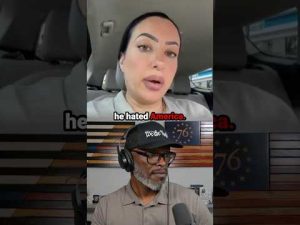In the ever-unpredictable realm of American politics, the ongoing drama between the current administration and its approach towards Israel and immigration creates more than just ripples. It conjures up a veritable storm of controversy and criticism. One recent discussion sheds light on this continuing saga, showing us how the administration tiptoes around condemning the notorious Hamas, a group well-known for its aggressive posture towards Israel. For years, they have lobbed rockets across borders while children stoop low in their underground playgrounds. With such clear-cut evidence of hostility, one might think the administration could quickly decry their actions. Yet, the silence is deafening, and one can’t help but wonder if they’re struggling to find their moral compass.
The argument that those who support or fail to denounce Hamas should be under scrutiny in the United States is gaining traction among conservatives. It begs the question: why should the doors of this great nation swing open for those who advocate violence or overlook those who do? It’s akin to welcoming the wolf into the henhouse and then acting surprised when feathers fly. It’s clear that some leaders are less enthusiastic about closing these doors, putting American lives at potential risk, and flouting the very privileges of residing in this country.
Sanctuary cities add another layer of complexity to this multifaceted issue. These zones, where local authorities resist cooperation with federal immigration laws, are interpreted by many as misguided havens fostering lawlessness. The leniency for repeat offenders—amusing, if not so dangerous—is baffling. It’s as if these locales have adopted a revolving-door policy for criminals while shutting their ears to the cries of their victims. The tale of one law enforcement officer undergoing a nightmare confrontation with a repeat offender speaks volumes. Sadly, this isn’t an isolated incident in cities like Chicago, Boston, and Los Angeles, whose leaders seem more enthralled with empty rhetoric than addressing safety concerns.
President Trump, according to supporters, stands as a lone beacon against this tide, striving to enact justice and rid communities of individuals that threaten the safety and peace of law-abiding citizens. His efforts to work around the inert response of local governments aim to highlight the failures of leadership in these cities. For every string of news concerning a heroic action by law enforcement, the shadow of city governance looms large, a stark reminder of missed opportunities to put public safety first.
Critics of sanctuary cities are quick to point out the glaring neglect of discussing victims’ stories. The left seems all-too-ready to rally around the so-called rights of offenders, pivoting to narratives of systemic injustice, while families caught in the crossfire of crimes remain nameless and unseen. This dichotomy underscores a growing frustration among conservatives, and those who feel that the voices of Americans wronged by loose policies deserve headlines, not footnotes. It’s a societal balancing act, and as of now, it appears the scales are tipped in favor of complacency—a status quo that demands reevaluation.







